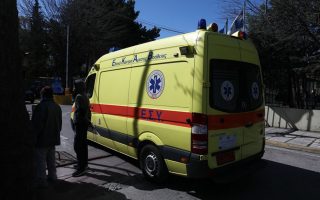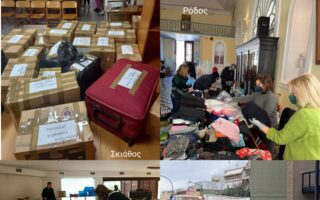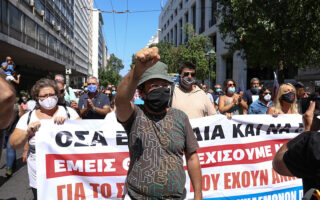Change of course by Erdogan
Turkish leader forced to shift focus to humanitarian crisis and own political survival

Turkish President Recep Tayyip Erdogan’s need for “calm waters” in the Aegean is becoming a forced option, as the situation inside Turkey following the earthquakes in the country’s south has made his political survival a difficult gamble.
Aside from the immediate devastation in terms of death toll and collapsing GDP, a wave of discontent against the government appears to be sweeping Turkey, which the ruling party appears powerless to manage. This requirement for home concentration de facto obliges Erdogan to tone down on all fronts toward the outside world.
This attitude was clearly evident during the meeting between Foreign Minister Nikos Dendias and his Turkish counterpart Mevlut Cavusoglu at the ruins of the destroyed Antakya. The radical change in style and content by Cavusoglu was justified by the circumstances, but any experienced observer would have realized that for Ankara at the moment all its priorities are narrowly focused within Turkey’s borders. As for the elections in Turkey, “no one is in a position to know anything at the moment,” said a source closely following the events in the country.
Apart from the dispatching by Greece of humanitarian aid, the tragedy has activated a number of channels which had hitherto been limited to the very basics. In the aftermath of the earthquakes, channels were opened at many different levels (presidential, prime ministerial, diplomatic, civil protection) and, it seems, will remain so for the foreseeable future.
In Athens, however, there is a diplomatic restraint, as Turkey is currently a deeply wounded country, which may in the coming months find itself in a state of transition to a completely different era.
Greek-Turkish contacts will continue in Brussel with a brief face-to-face meeting between the respective defense ministers, Nikos Panagiotopoulos and Hulusi Akar, in Brussels either on the sidelines of Tuesday’s the extraordinary meeting of the Contact Group on Ukraine or of Wednesday’s NATO Defense Ministers’ Meeting.
In an interview on Star TV on Monday, Dendias conveyed the extent of the unfolding humanitarian crisis.
“It is an area where temperatures are below zero at night. They need huge help, winter tents as quickly as possible. The estimate is that 65,000 tents are needed. They need containers and capacity to house the most vulnerable part of the population. There are no more hospital beds in the area,” he said.





